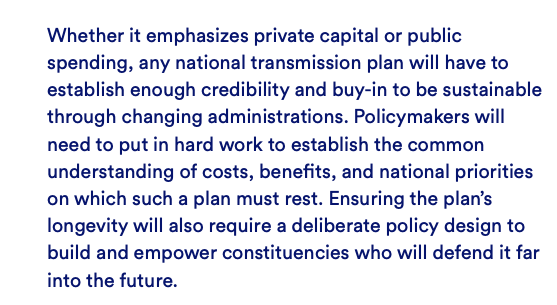
NEW REPORT+THREAD: The price tags of essential services like education, child care, etc., are out of control.
The progressive approach? Socialize the costs.
But cutting regulations that limit the supply of these services is the ONLY way to address the root of the problem.
The progressive approach? Socialize the costs.
But cutting regulations that limit the supply of these services is the ONLY way to address the root of the problem.

The problem with the progressive approach of guaranteeing affordability via subsidies is:
(1) Public debts/deficits can’t grow without limit
(2) Subsidies will cover up the bloat and waste and drive costs up further (we’ll throw out a few examples).
(1) Public debts/deficits can’t grow without limit
(2) Subsidies will cover up the bloat and waste and drive costs up further (we’ll throw out a few examples).
But the budget hawks who, out of concern for the national debt advocate for spending cuts across the board, ignore the real expenses that Americans face.
In the end, Americans will support the subsidies over this backwards-facing approach.
In the end, Americans will support the subsidies over this backwards-facing approach.

So scratch socializing everything, and scratch total austerity. We have to look at why the costs of essential goods and services are going up exponentially without a corresponding increase in what Americans are getting.
It is no coincidence that the goods and services most frequently subsidized are also sectors where regulations that artificially constrain supply abound. Addressing regs avoids the either/or approach of whether to increase govt spending!
Let’s look at a few examples.
Let’s look at a few examples.

Housing costs in urban areas have skyrocketed because restrictions on land-use and zoning prevent construction of new housing units, even as demand grows.
Case in point: it is ILLEGAL to build apt buildings in 76% of San Francisco. 😬
Case in point: it is ILLEGAL to build apt buildings in 76% of San Francisco. 😬

Constructing more housing will make it more affordable. @paytonchung found that in Washington D.C. rents went down by 8% in Navy Yard between 2014-2018 (lots of new construction).
Rents increased by 20% in Capitol Hill (no construction allowed). #YIMBY
ggwash.org/view/68373/a-t…
Rents increased by 20% in Capitol Hill (no construction allowed). #YIMBY
ggwash.org/view/68373/a-t…
Here’s how demand-side solutions will increase housing costs: Rent subsidies drive up demand without a corresponding increase in supply (a textbook formula for cost inflation). As prices go up, increasing subsidies becomes a never-ending cycle.
It’s a similar story for #HigherEd. As costs go up, it’s tempting to just subsidize it, but that’s unsustainable in the long run. 

The ballooning costs of higher education aren't primarily due to the actual costs of instruction. The costs of the physical buildings +administration seem to be the culprits. Addressing these would go a long way toward cutting costs. theatlantic.com/education/arch…
And rigid models for child care with high barriers to entry make it unaffordable for many lower-income households.
https://twitter.com/NiskanenCenter/status/1405528903972638725
Check out @PTBwrites’s report showing how we can make child care more affordable AND flexible. niskanencenter.org/child-care-plu…
We haven't even gotten to healthcare, but here's a little factoid: The U.S. spends more on health care than any other developed country. In 2019, national expenditures amounted to $3.8 trillion, or 17.7% of GDP, more than double the OECD average of 8.8% percent of GDP.
The report shows how the U.S. is plagued by #certificateofneed laws, bottlenecks in physician education, restrictions on non-MD practitioners, #occupationallicensing, etc. Addressing these could drive down the costs of health care while improving quality.
The U.S. desperately needs better social insurance.
Absent structural reforms to increase access to essentials, however, socializing these costs would be throwing good money after bad and pushing deficit spending to potentially unsustainable levels.
Absent structural reforms to increase access to essentials, however, socializing these costs would be throwing good money after bad and pushing deficit spending to potentially unsustainable levels.
In their new report, @hamandcheese, Steve Teles, and @DanielTakash put political economy front and center, adopting an approach that addresses the concerns of both progressives and conservatives regarding the cost of social insurance.
Check it out here: niskanencenter.org/cost-disease-s…
Check it out here: niskanencenter.org/cost-disease-s…
May be of interest to @Noahpinion, @ModeledBehavior, @ne0liberal, @JoshuaTMcCabe, @mattyglesias, @dylanmatt among others.
• • •
Missing some Tweet in this thread? You can try to
force a refresh







